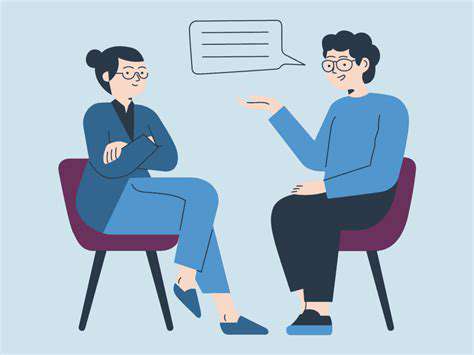Physical Anxiety Symptoms Without Feeling Anxious: What to Know
The Role of Stress and Lifestyle Factors
Stress and its Impact on Physical Health
Stress, a ubiquitous part of modern life, exerts a profound influence on our physical well-being. Chronic stress, in particular, can manifest as a cascade of physiological responses, often leading to a variety of physical symptoms. Understanding the mechanisms through which stress affects the body is crucial in recognizing and managing these symptoms effectively. This includes recognizing how stress hormones like cortisol can impact various bodily functions and contribute to the development of physical anxiety symptoms.
From a biological perspective, stress triggers the release of stress hormones. These hormones, while vital for short-term survival responses, can have detrimental effects on the body if sustained over extended periods. This prolonged activation can lead to a weakened immune system, increased susceptibility to illness, and contribute to the development of various health problems.
Lifestyle Choices and Physical Anxiety
Numerous lifestyle factors significantly contribute to the experience and manifestation of physical anxiety symptoms. Poor dietary habits, lack of sufficient sleep, and inadequate physical activity can all exacerbate stress responses within the body. These factors create a vicious cycle, where stress perpetuates unhealthy behaviors and unhealthy behaviors, in turn, intensify stress levels.
For example, a diet lacking essential nutrients can compromise the body's ability to cope with stress. Similarly, insufficient sleep disrupts the body's natural restorative processes, further weakening its ability to manage stress hormones effectively.
Dietary Habits and Anxiety Symptoms
The foods we consume profoundly impact our physical and mental well-being, and this is especially true when it comes to managing anxiety. A diet high in processed foods, sugar, and caffeine can trigger or exacerbate physical anxiety symptoms. Such foods often lead to fluctuations in blood sugar levels, contributing to feelings of anxiety and physical discomfort.
Conversely, a balanced diet rich in fruits, vegetables, whole grains, and lean proteins provides essential nutrients that support the body's natural stress response mechanisms. This can help mitigate the impact of stress on the body and reduce the likelihood of experiencing physical anxiety symptoms.
Sleep Deprivation and Physical Symptoms
Adequate sleep is essential for physical and mental well-being, and sleep deprivation can significantly impact the body's ability to cope with stress. When we don't get enough sleep, our bodies and minds are not adequately rested, leaving us more vulnerable to stress and the resulting physical symptoms.
Chronic sleep deprivation can lead to a weakened immune system, increased inflammation, and an impaired ability to regulate stress hormones. This, in turn, can manifest as a variety of physical symptoms associated with anxiety.
Exercise and its Role in Stress Management
Regular physical activity plays a crucial role in managing stress and reducing the likelihood of physical anxiety symptoms. Exercise helps to release endorphins, which have mood-boosting effects and can help alleviate feelings of stress and anxiety.
Furthermore, exercise promotes better sleep, which is vital for managing stress. By incorporating regular exercise into your routine, you can strengthen your body's resilience to stress and reduce the risk of experiencing physical anxiety symptoms.
The Impact of Environmental Factors
Environmental factors can significantly influence an individual's stress levels and, consequently, the manifestation of physical anxiety symptoms. Exposure to loud noises, pollution, and chaotic environments can trigger stress responses, leading to physical tension, headaches, and other symptoms.
Similarly, feeling isolated or lacking social support can contribute to a heightened sense of stress and anxiety, making an individual more prone to experiencing physical symptoms.
Seeking Professional Help for Physical Anxiety
If you're experiencing persistent physical anxiety symptoms, it's crucial to seek professional help from a healthcare provider. A doctor can assess your symptoms, rule out any underlying medical conditions, and recommend appropriate interventions.
This may involve therapy, medication, or lifestyle changes, tailored to address your specific needs and concerns. Don't hesitate to reach out for support, as early intervention can significantly improve your well-being and quality of life.
